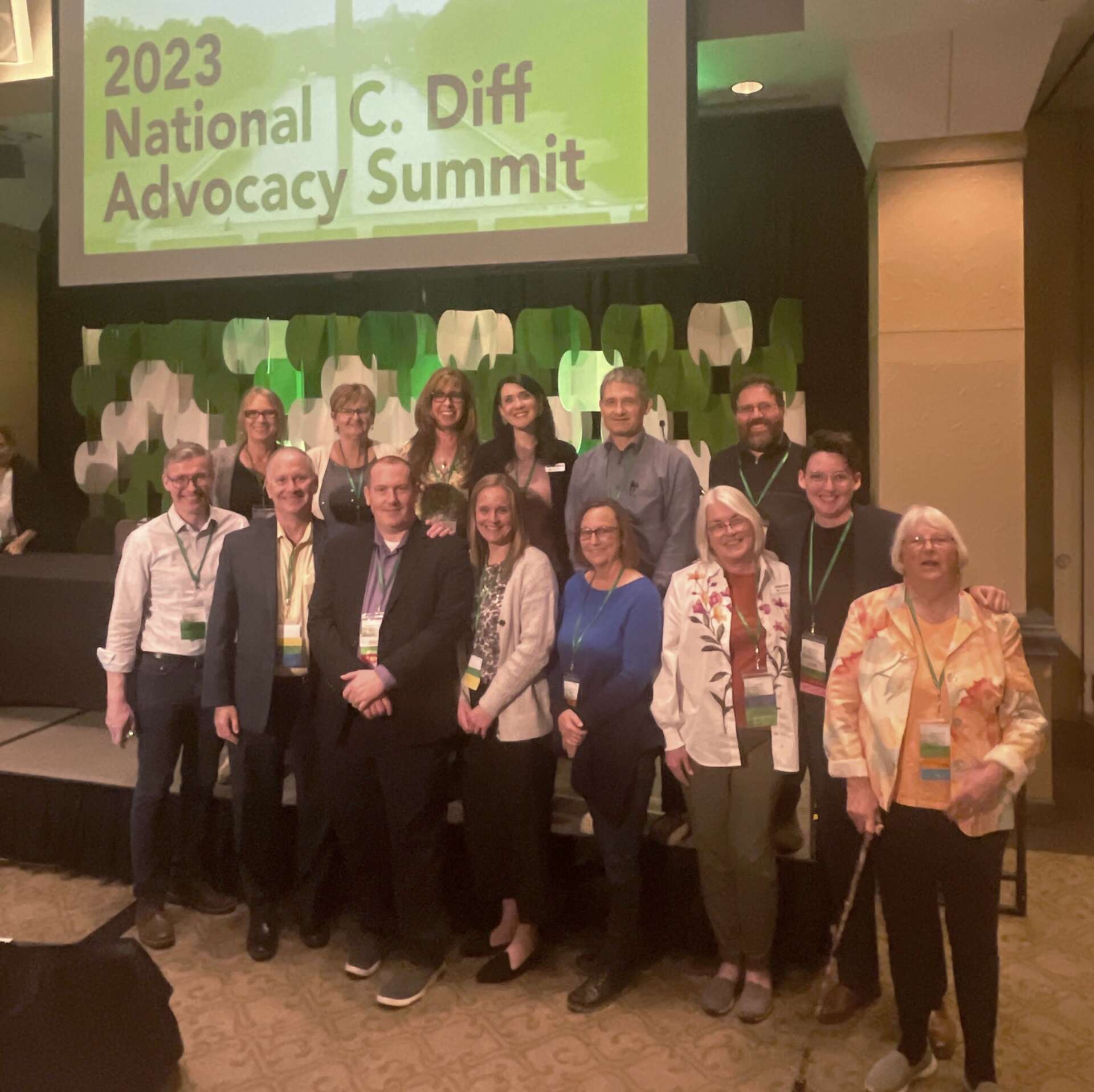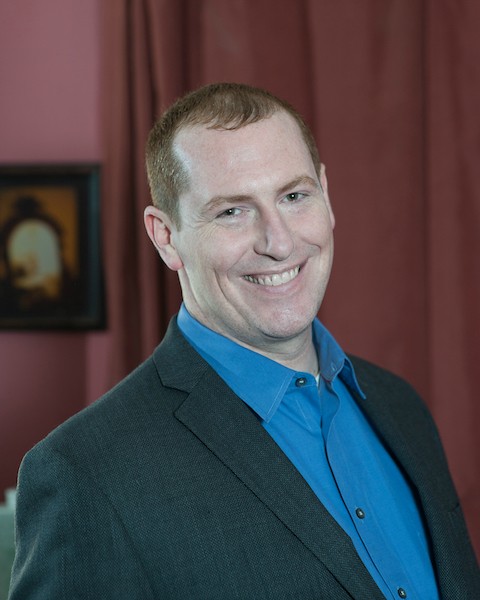Alright – so today we’ve got the honor of introducing you to Christian John Lillis . We think you’ll enjoy our conversation, we’ve shared it below.
Hi Christian John, thanks for joining us today. Was there a moment in your career that meaningfully altered your trajectory? If so, we’d love to hear the backstory.
The most defining moment of my career was the untimely death of my mother, Peggy, from a C. difficile infection when she was just 56 years old. Before my mother’s death, I worked primarily as a fundraiser for various organizations, including the National LGBTQ Task Force, NYU Langone Medical Center, and Teach For America. My mother had me when she was just nineteen years old. She and my father split up when I was five and my brother was two. Having such a young mother, I assumed I would have her with me for many, many years. Her life being cut short by such a poorly known and preventable infection infuriated me. It also opened my eyes to the enormous failures of our medical system. Since there was no patient advocacy organization dedicated to fighting C. diff at the time of my mother’s death, me and my brother co-founded the Peggy Lillis Foundation for C. diff Education & Advocacy. The biggest lesson I’ve learned is that with enough determination and support from friends and family, almost anyone can turn a tragedy into a mission of hope. While I had a good understanding of nonprofit management before my mother’s death, I’ve had to learn a range of other skills in management, accounting, nonprofit law, advocacy and lobbying to make our nonprofit a success.



Christian John, before we move on to more of these sorts of questions, can you take some time to bring our readers up to speed on you and what you do?
I grew up in a large, multi-generational, working-class, Irish-Catholic family in Brooklyn, New York. My mother, Peggy, had me when she was nineteen and my brother when she was 22. By the time I was five, my parents’ marriage was falling apart. While we were kids, Mom was on welfare and waited tables to make ends meet while she put herself (and later me) through college. After college, I went to work for Lambda Legal in the fundraising department and fell in love with it. As someone who didn’t have much money growing up, I didn’t have a lot of hang-ups about it. I also loved the Robin Hood quality of channeling the resources from those who had a lot to those who didn’t have much or toward shared community needs like LGBTQ civil rights work. I went on to fundraise for NYU Langone Medical Center, the National LGBTQ Task Force and Teach For America. While at NYU, I met my husband. Mom had become a kindergarten teacher. My brother was a union plumber and engaged to his now wife. Our lives were great.
Then in April 2010, it all went to Hell. My mother had a root canal from her long-time dentist. Her dentist prescribed her an antibiotic to ensure that she didn’t get an infection. A few days later, she came down with voluminous diarrhea. We did not connect the antibiotic use with the diarrhea. Everyone assumed she had picked up a stomach bug from one of her students. After five days of these symptoms, we took Mom to the emergency room. We were mostly concerned about dehydration. Shortly after we arrived, Mom was diagnosed with a massive infection caused by a bacterium called Clostridium difficile or “C. diff.” We learned this infection is generally associated with antibiotic use. Though lucid and talking, she was in the early stages of sepsis. Over the next 36 hours, the doctors did everything they could, including surgery to remove her colon. Despite their best efforts and countless prayers, our mother died on April 21, 2010. She was just 56 years old. The grief was epic. After her funeral, I was desperate to understand what had happened to my mother. Through a lot of online research, we learned that no organization existed to fight this disease or help those suffering despite a death toll as high as HIV/AIDS or drunk driving. We agreed that between my professional background and our big network of family and friends, we could fill that void. So, in the summer of 2010, we launched the Peggy Lillis Foundation.


What do you think helped you build your reputation within your market?
Authenticity. We started Peggy Lillis Foundation out of deep grief over my mother’s death. Our society does not give people permission or space to grieve. Instead, we’re expected to take our three days off and return to work as if we’re fine. For me, some losses are so incalculable and devastating that you’ll never be the person you were before that loss. In some ways, PLF is an ongoing act of publicly mourning my mother, permitting others to mourn how C. diff or other infectious diseases have damaged and destabilized their lives.
I have no official clinical training, but thanks largely to my mother, I have a fine-tuned BS detector and a very low tolerance for BS. So rather than approaching PLF’s work as if I know better than doctors or nurses, I approach it from a position where mourning has stripped away my ego, my need to be “right,” and my self-consciousness. It lets me be as authentic as I can be, which people sense and are drawn to. It means I don’t debate microbiology or biochemistry. Rather, I push for the policies, funding and awareness that will lead to fewer people getting C. diff, those who are infected getting diagnosed faster and then accessing the best possible treatments.
Over the past thirteen years, I’ve built a reputation where people from every sector that touches C. diff infections know that I’m always an honest person, that our disagreements are not personal or petty, and that I live out my mother’s values of kindness, hard work, community and standing up for the vulnerable. When it comes to interacting with other leaders, particularly those carrying out or implementing policies that are counter to ending the C. diff epidemic, I refuse to settle. But, again, I don’t make it personal. If someone works for the FDA or CDC, they are not carrying out their own agenda. They represent an institution that needs to change. My goal is to maintain a strong working relationship with people who are genuinely invested in public health while also exerting outside pressure for reform.
I recognize everyone who has helped us along the way. When we first started, I was working a pretty demanding full-time job. I relied on everyone from my mother’s colleagues to my friends and former coworkers to my family and husband. Aside from my mother, I’m the face of this organization and movement, so when we succeed, everyone throws flowers at me. In those moments, it’s vitally important to give credit where it’s due. I am still grateful to the friend who designed our first logo for free, the friend who built our first website, the women who helped plan our first fundraiser, and the people at CDC who spent time educating me about C. diff.
I find that having a good sense of humor is very disarming.
Any advice for managing a team?
Treat your team as full people. I have pretty exacting standards for our work, but I also recognize that humans have good, bad, and mediocre days, myself included. Some managers get very caught up in the process, like “Did this staff member work 50 hours last week? Did they review the document in the way I would?” Before I was a manager, I hated being micromanaged, so I just don’t do it. If something isn’t turning out right, I ask questions and offer feedback about the work, but I also ask how that person is doing outside of work. Is their health good? Are they struggling with issues at home? Are they sleeping enough?
I don’t like being treated like an automaton, so I don’t treat people that way. And, as I mentioned above, I give credit where it’s due, whether it’s a staff member, Board member, or consultant. I don’t need or want to take credit for other people’s ideas or work. I get more than my share of credit based on our overall success. At the same time, I don’t blame subordinates for our failures. The buck stops with me. Frankly, any leader who throws their subordinates under the bus doesn’t deserve their position.
Contact Info:
- Website: peggyfoundation.org
- Instagram: peggyfund
- Facebook: https://www.facebook.com/PeggyFoundation
- Linkedin: https://www.linkedin.com/company/the-peggy-lillis-memorial-foundation/
- Twitter: peggyfund
Image Credits
All images are owned by Peggy Lillis Foundation.


